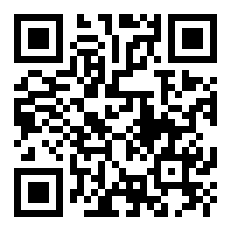Code-switching in education: Exploring the role of indigenous languages in bilingual classrooms
DOI:
https://doi.org/10.60787/jnlp.v6i2.71Keywords:
code-switching, indigenous languages, bilingual education, Nigeria, sociolinguisticsAbstract
This study explores the phenomenon of code-switching involving indigenous languages in
bilingual classrooms, aiming to fill a research gap regarding the prevalence, functions, and socio-linguistic dynamics of code-switching within the Nigerian educational context. Through a mixed-methods approach encompassing participant observation, interviews, and surveys, the study investigates the frequency, contexts, and attitudes towards code-switching among students and teachers in four public primary schools in Oyo State, Nigeria. Findings reveal that code-switching serves various communicative functions, including clarification, cultural expression, and identity negotiation, emphasising its integral role in supporting bilingual education and promoting linguistic diversity. Additionally, the study emphasises the importance of recognizing and valuing indigenous languages as carriers of cultural heritage and identity, challenging monolingual norms, and promoting educational equity and social inclusion. The study contributes to theoretical understanding of code-switching phenomena and provides practical insights for educators and policymakers seeking to promote linguistic diversity, cultural inclusivity, and educational equity.
References
Adesina, O. B. & Jegede, O. O. (2020). Code Switching as a Medium of Instruction in Basic Schools in Osun and Oyo States, Nigeria. Journal of English and Communication in Africa, 3(1&2), 33-70.
Adler, J. (1998). “A Language of Teaching Dilemmas: Unlocking the Complex Multilingual Secondary Mathematics Classroom”, For the Learning of Mathematics, 18, 24-33.
Adler, J. (2001). Teaching Mathematics in Multilingual Classrooms. Dordrecht: Kluwer Academic Press.
Baker, C. (2011). Foundations of Bilingual Education and Bilingualism. Bristol: Multilingual Matters.
Benyo, A., & Kumar, T. (2020). An analysis of Indian EFL learners’ listening comprehension errors. Asian ESP Journal, 16(5.2), 69-85.
Boztepe, E. (2003). Issues in code-switching: competing theories and models. Studies in
Applied Linguistics and TESOL, 3(2), 37-51.
Cahyani, H., de Courcy, M., & Barnett, J. (2018). Teachers’ code-switching in bilingual classrooms: exploring pedagogical and sociocultural functions. International Journal of Bilingual Education and Bilingualism, 21(4), 465–479.
Catabay, M. Q. (2016). Students’ Perception on the Use of Code-Switching in English as a Second Language Class. International Journal of Advanced Research in Management and Social Sciences, 5(4), 272–251.
Cohen, L., Manion, L., & Morrison, K. (2018). Research Method in Education (8th ed.). Routledge.
Creswell, J. W. (2012). Educational Research (4th ed.). Pearson Education, Inc.
Dendup, P. (2020). Code-Switching in the Classroom: The Perspectives of Bhutanese Teachers. International Journal of Linguistics and Translation Studies, 1(3), 47-57.
Fareed, M., Humayun, S., & Akhtar, H. (2016). English Language Teachers’ Code-switching in Class: ESL Learners’ Perceptions. Journal of Education & Social Sciences, 4(1), 1–11.
Ferguson, G. (2009). What next? Towards an agenda for classroom codeswitching research.
International Journal of Bilingual Education and Bilingualism, 12(2), 231–241.
Fuster, C., & Neuser, H. (2019). Exploring intentionality in lexical transfer. International Journal of Multilingualism, 17(4), 516–534.
García, O., & Wei, L. (2014). Translanguaging: Language, bilingualism and education. Translanguaging: Language, Bilingualism and Education, 1–165.
Jegede, O. O. (2011). Code Switching and Its Implications for Teaching Mathematics in Primary Schools in Ile-Ife, Nigeria. Journal of Education and Practice, 2(10), 41-54.
Jegede, O. O. (2012). Roles of Code Switching in Multilingual Public Primary Schools in Ile-Ife. American Journal of Linguistics, 1(3), 40-46
Jegede, O. O. and Adetuyi, C. A. (2016). Language-in-Education Policy in Nigeria: The Reality of Teachers’ Language Choices. Journal of Capital Development on Behavioural Sciences, 4,(1), 1-18.
Jegede, O.O., Yusuf, O.M., & Aliyu, A. (2024). Inclusive Education in the 21st Century: Solving the Language of Instruction Puzzle in Nigerian Public Primary Schools. In A. F. Adeyemi, P. O. Yara, O. Oyelami, & O. Bakare-Fatungase (Eds.), Inclusive Education in the 21st Century: A Festschrift in Honour of an Erudite Scholar, Rev. Dr. (Mrs) Oluwatoyin Abike Odeleye (pp. 147-157). Ibadan: College Press.
Salami, L. O. (2008). ‘It Is Still Double Take’: Mother Tongue Education and BilingualClassroom Practice in Nigeria, Journal of Language, Identity and Education, 6(4), 1-23.
Setati, M. (1998). “Code-Switching and Mathematical Meaning in a Senior Primary Class of Second Language Learners”, For the Learning of Mathematics, 18, 1, 34-40.
Setati, M. and Adler, J. (2001). Between Languages and Discourses: Code SwitchingPractices in Primary Classrooms in South Africa. [Online] Available: http://www.mai.liu.se/~chber/workshop/Setati&Adler.pdf (March 19, 2008)











